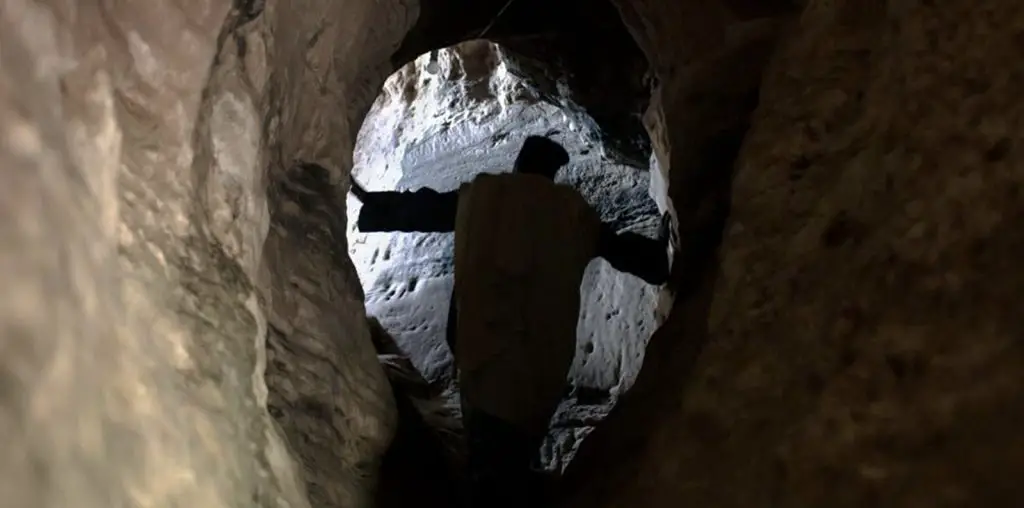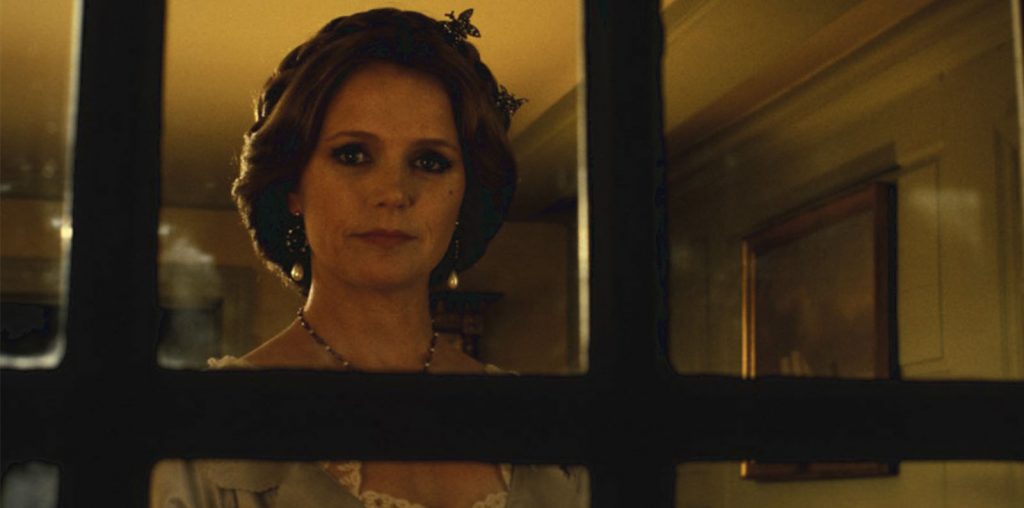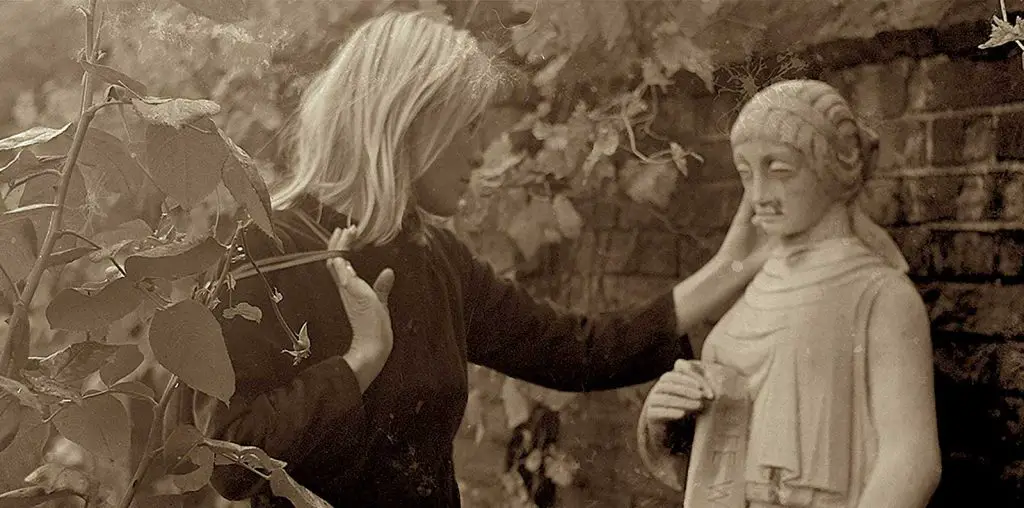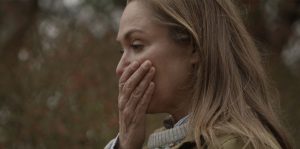
In Being Dead, each character is carrying either a cross, an albatross, or some other symbolic object of burden—I’m sure there are more than two. It’s an ensemble story, so you’re dealing with many emotional currents, some of which transcend time. The most prevalent of these currents is the relationship between Joseph (Linus Roache) and Celice (Elizabeth Marvel), two scientists living alone (together) on the beachside. It’s the type of isolated, scenic location where you can genuinely let your regrets eat away at your soul without being bothered.
We jump back and forth in time, getting a look at Joseph and Celice’s relationship as it burns at both ends. Elsewhere in the world, their daughter, Syl (Emilotte Persson), is struggling to make it, leading with the chip on her shoulder, running over every good thing that comes her way. When we first meet her, she loses a waitressing job by giving a customer a hard time, then goes straight to canoodling a traveling pool player in the bathroom for cash. As the story of her parents becomes clearer, Syl’s life trajectory picks up, especially after meeting an eligible cab driver.
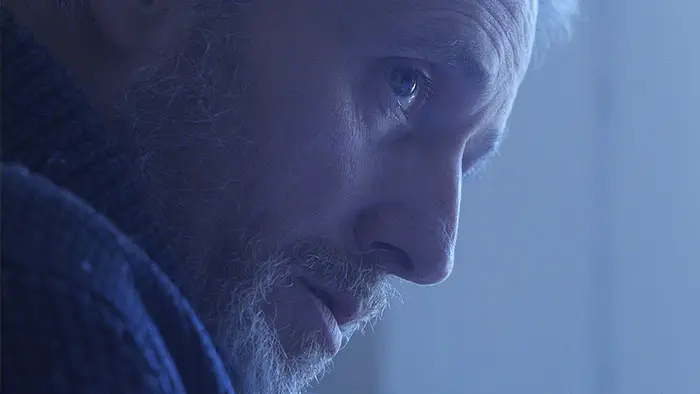
“We jump back and forth in time, getting a look at Joseph and Celice’s relationship as it burns at both ends.”
The director of the movie, John Meyers, has a firm grip on the tone and pushes some capable actors in front of the camera. It may not seem like much, but just having these two aspects of the movie together lends it a certain believability. Even though it’s one of the smaller parts, the actress who plays Celice’s childhood friend, Esther Hafner, is particularly good. You wish Meyers had called an audible and redirected the story to her character. The quality of the acting does vary widely, however.
What doesn’t help is the flowery nature of the dialogue. More often than not, it comes across as overly written and unnatural, even for high drama. If you’re going to have theatrical language, it’s got to be so finely-tuned as to excuse its own existence. And while Meyers does get the tone down, the movie could pull back a bit on the dramatics. There’s only so much brooding synthesizer and staring into space that a movie can handle before it becomes fatally in love with itself–they have an overkill effect when combined with the material. You get the feeling that Meyers is applying external, one-size-fits-all tropes to a story that deserves unique attention.
I can’t say there was any tear-jerking happening on my end, but I can say Being Dead has a kind of moody swagger to it. It’s helped immensely by a few standout performances that go a long way in giving the movie life. If it weren’t so hung up on in-your-face melodrama to achieve poignancy, the movie would have had a much better chance at getting to the bottom of its complex characters. Still, it managed to penetrate the surface, which is not easy.
Being Dead screened at the 2020 Method Fest.
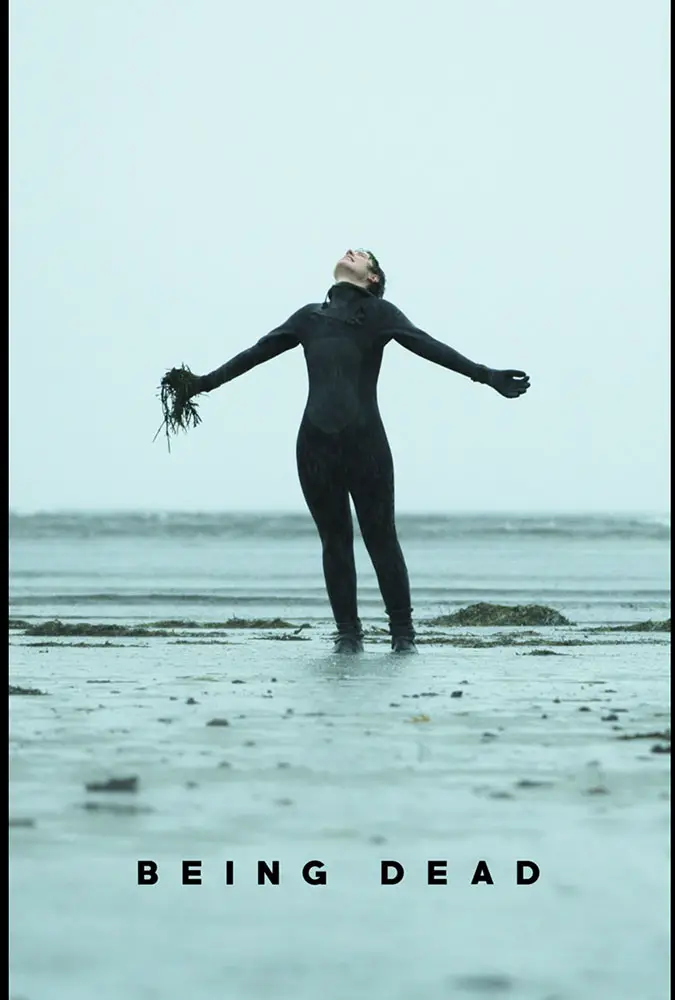
"…the type of isolated, scenic location where you can truly let your regrets eat away at your soul without being bothered."
